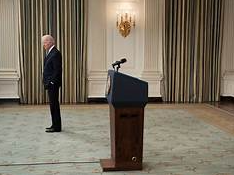With the US House of Representatives paralyzed, the country’s political system struggles to respond to Israel’s security crisis.
The US House of Representatives is currently facing a severe crisis of governance. Without a Speaker, the chamber has become paralyzed, unable to pass crucial legislation, approve spending bills, or conduct the necessary business of government. This dysfunction is especially damaging given the heightened international tensions and challenges the US faces. The timing of this leadership vacuum couldn’t be worse, as Israel—one of America’s most important allies—finds itself at war, and other global conflicts continue to rage.
On 12 October, Republican nominee Steve Scalise withdrew from the race for Speaker after failing to secure enough votes, leaving the House in limbo. This leadership vacuum is deeply concerning, particularly as the US faces multiple international crises. With less than 40 days remaining to fund the US government, the dysfunction within the House is creating an added layer of uncertainty and instability at a time when strong leadership is most needed.
Israel’s war against Hamas, triggered by an attack from Gaza on 7 October, has put the US in the position of needing to show support for its ally. President Joe Biden wasted no time condemning the attack and affirming American solidarity with Israel. In a speech delivered on 10 October, Biden referred to the Hamas assault as “pure unadulterated evil,” making it clear that the US stands firmly with Israel in its time of need. The president promised that the US would ensure Israel has the resources it requires to defend itself.
In response to the escalating situation, the US has deployed a carrier strike group to the eastern Mediterranean and sent Secretary of State Antony Blinken to Israel to reinforce the nation’s position. Military aid has been dispatched, underscoring the US commitment to Israel’s defense. Yet, despite this show of support from the executive branch, the paralysis in the House of Representatives threatens to undermine the country’s ability to act effectively in a time of international crisis.
The absence of a fully functioning Congress is particularly alarming at this juncture. While the president can take executive actions, it is Congress that holds the power of the purse and is central to making significant decisions on military aid, foreign policy, and funding the government. The dysfunction in the House has created an environment where swift action is difficult, just as global crises demand a coordinated response.
The situation reveals the broader issue of political dysfunction in the US, as partisan divisions and internal conflicts in Congress prevent the government from responding effectively to the international crises it faces. The failure to elect a new Speaker reflects deep divisions within the Republican Party and a broader erosion of the ability to govern effectively in times of uncertainty.
As the war in Israel continues and other international tensions mount, the inability of the US government to function smoothly is becoming more apparent. The lack of a Speaker in the House only amplifies the country’s political dysfunction, and with significant decisions on the horizon, this dysfunction threatens not just the US’s domestic stability but its ability to manage global challenges.

